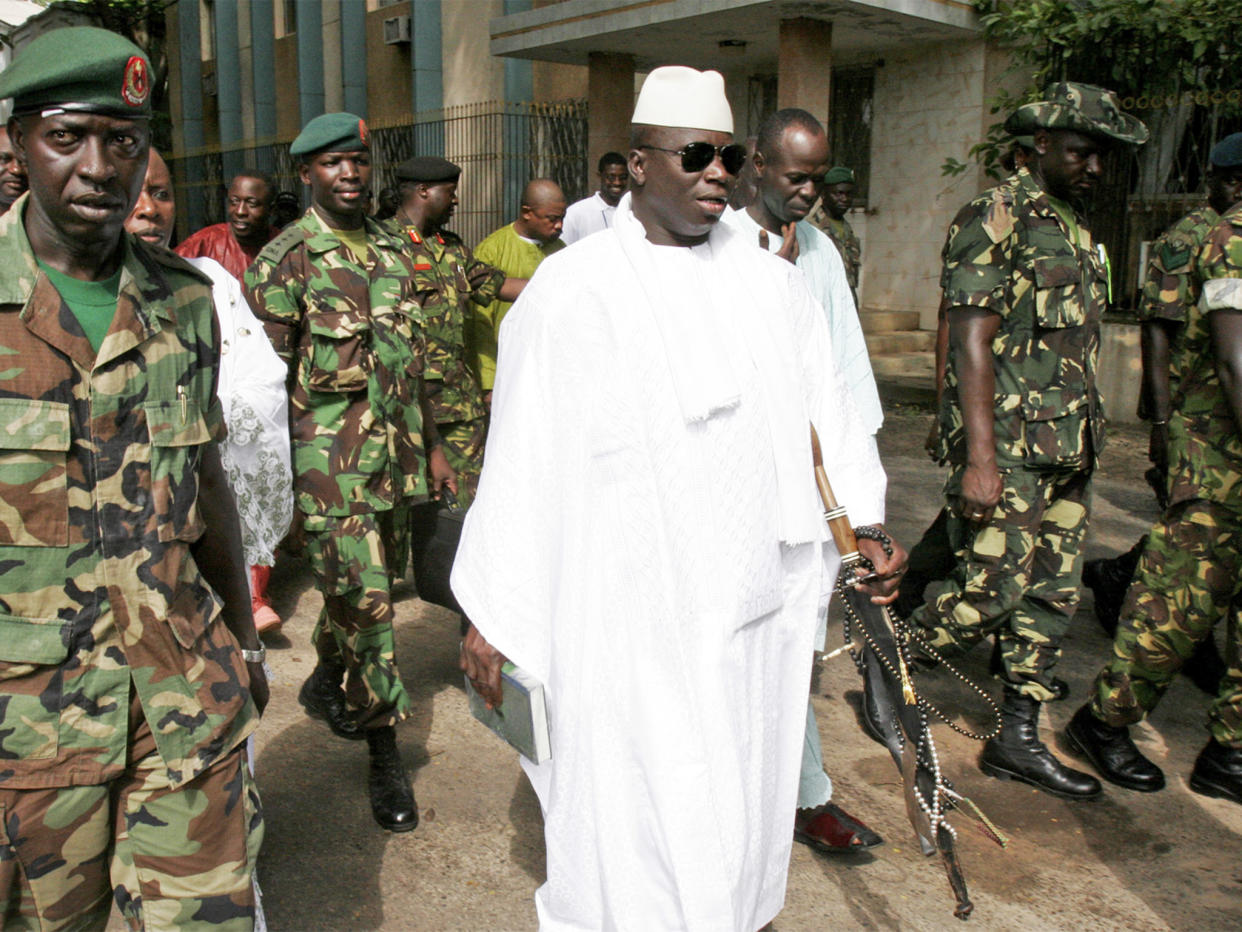The Gambia crisis: Former president Yahya Jammeh given midday deadline to leave country

Yahya Jammeh, the former president of The Gambia, has been given until midday on Friday to leave the country after regional leaders sent troops across the border in support of his successor.
The Ecowas union of West African states said its troops would forcibly remove Mr Jammeh from power unless he agreed to finally hand power to his democratically-elected successor, Adama Barrow.
Mr Jammeh, who has been president since 1994, lost December’s presidential election to Mr Barrow but has refused to leave office. On Thursday he sacked his remaining cabinet ministers and vowed to run all government departments himself.
Senegalese troops entered The Gambia on Thursday night vowing to remove Mr Jammeh from power. Several West African leaders, including the presidents of Liberia, Mauritania and Guinea, will arrive in Gambia on Friday in a last-ditch attempt to negotiate a peaceful transition of power.
With the incumbent clinging to power, Mr Barrow was forced to hold his inauguration ceremony on Thursday in Dakar, the capital of neighbouring Senegal. He has the support of other West African states and was backed by a unanimously-passed resolution of the UN Security Council.
Mr Barrow took the oath of office at his country’s embassy in Dakar in front of an audience of delegates.
Speaking afterwards he said: “This is victory of the Gambian nation. Our national flag will now fly high among the other democratic nations of the world.
"This is a day no Gambian will ever forget. “This is the first time since the Gambia became independent in 1965 that the Gambia has changed the government through the ballot box.”
He also called on the UN to support his right to govern.
“I hereby make a special appeal to Ecowas, AU [African Union] and the UN, particularly the security council, to support the government and people of the Gambia in enforcing their will, restore their sovereignty and constitutional legitimacy”, he said.
Read more
British tourists describe airport 'chaos' fleeing crisis-torn Gambia
Gambia's President-elect Adama Barrow hails 'new era' for his country
Gambia's votes to extend president's term of office for three months
The UN Security Council responded by unanimously backing an emergency resolution calling on countries in the region “to cooperate with President Barrow in his efforts to realise the transition of power”. It urged the use of “political means first”, however.
Despite initially conceding defeat following his election loss, Mr Jammeh then dismissed the result and claimed the vote had been marred by irregularities. Although many of his ministers have since resigned, the former president has continued to assert his right to remain in office.

 Yahoo News
Yahoo News 
